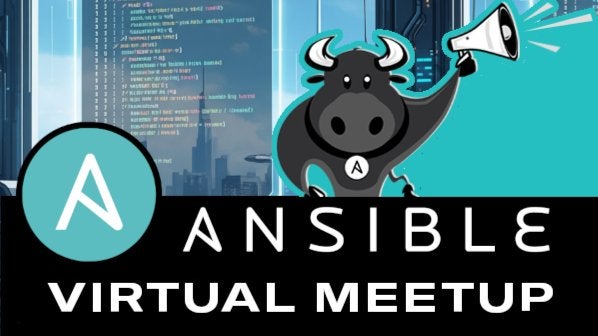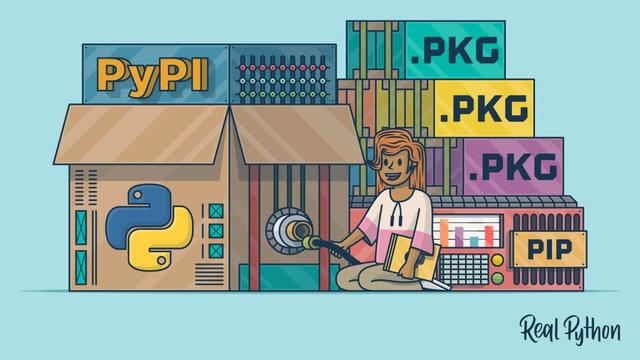Hm #Ansible does not seem to re-create a virtualenv after the python Interpreter of the system has been updated (e.g. after a dist-upgrade). How can I make a playbook doing this?
#ansible
#molecule #ansible Ich bin hin und her gerissen.
Einerseits muss ich mich jetzt mit Molecule und Ansible beschäftigen und einen Vortrag dazu basteln, andererseits erfreut es mich, dass ich dazu auf der #mrmcd25 einen Vortrag halten darf.
Kurzum, scheinbar bin ich jetzt in diesem Game angekommen, und werde mich dann jetzt mal in die Vorbereitung stürzen.
Yes!! Success!
Magaged to get fully-automated deployment of FreeBSD VMs on Proxmox VE with cloud-init and static-ip configuration working after quite some troubleshooting.
- hostname, network config, ssh key, local user is all passed to the VM via cloud-init.
- Entire deployment of a FreeBSD VM takes less than 2 minutes until I can SSH in

Ansible Virtual Meetup: October 2025
When: October 2nd, 18:00
Where: online
https://www.meetup.com/ansible-london/events/310386047/
(now with updated Meetup URL)

[How-To] Problema ‘externally-managed-environment’ al instalar mediante pip3 #developer #gnu_linux #sysadmin #ansible #archlinux #cli #debian #devops #environment #fedora #linux #pip #pipx #puppet #python #rhel #rocky_linux #tips_how_to
https://h4ckseed.wordpress.com/2025/08/23/how-to-problema-externally-managed-environment-al-instalar-mediante-pip3/

This summer I got to teach an #ansible workshop. I decided to write on getting set up for it, because it went pretty sideways at the beginning but ended up working out perfectly well.
My #SmartOS Live Demo Failure, and Success
https://blog.passwordclass.xyz/posts/2025-08-21-my-smartos-live-demo-failure-and-success/
Hot take: #ansible is just fancy scripting
The latest edition of the #ansible Bullhorn is out! With updates on collections and Ansible releases.

Der absolute Spitzenreiter an alten Servern ist einer mit 470 ausstehenden Updates, davon 420 kritisch.
Die Uptime liegt bei 825 Tagen.
Binde gerade mit meinem Ansible Playbook viele VMs in das Monitoring und in das Loganalyse-Tool ein und erfahre viel über das Netzwerk.
WTF...
I've just published version 25.7.1 of 'kpfleming.systemd_networkd', my collection of Ansible roles for managing systemd-networkd configuration. New in this release are a half-dozen 'advanced' features in the 'network' role, along with a new 'bridge' role. Most of these changes originated from my recent project to switch to DHCPv6-PD on my home network, and also eliminate the standalone DHCPv4 servers I was using.
If you're an Ansible user and use systemd-networkd on your managed machines, take a look! Here's an example of a moderately-complex configuration:
https://github.com/kpfleming/ansible-systemd-networkd#examples
I've got more complex ones if you're really interested
#Ansible #systemd #networking #systemd-networkd
#Ansible Users: what would you consider 'best practice' ..
* having a dedicated ansible user with a common password, ssh keys and sudo access across systems, or
* just using your own user and giving yourself a common password across systems?
Managing network interfaces with #ansible seem ... kinda jank? What am I missing?
i want to play with something like woodpecker at some point, but now i have made some progress with the existing setup:
* the nvchecker triggerscript (checks for new releases):
* posts to vikunja now (mail+applescript+omnifocus too fragile)
* checks if the updated app is configured as playbook
* runs the matching playbook
* from post_tasks, a conditional webhook is triggered using ansible_play_hosts/ansible_play_hosts_all:
#ansible
Just uploaded a new version (0.3.5) of the #Uyuni #Ansible collection. It comes with two new modules for triggering Salt States and Highstates: https://galaxy.ansible.com/ui/repo/published/stdevel/uyuni/?version=0.3.5
Happy converging!
HashiCorp is hiring Senior Manager, Cloud Platform Services
#golang #javascript #typescript #ansible #aws #azure #gcp #terraform #seniorengineer
Bengaluru, India
Full-time
HashiCorp
Job details https://jobsfordevelopers.com/jobs/senior-manager-cloud-platform-services-at-hashicorp-com-aug-1-2025-aaf39d?utm_source=mastodon.world&utm_medium=social&utm_campaign=posting
#jobalert #jobsearch #hiring



 Olli Graf
Olli Graf

